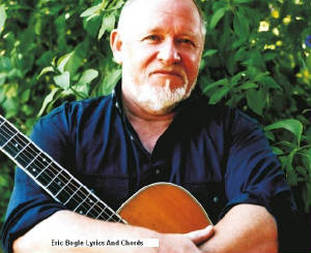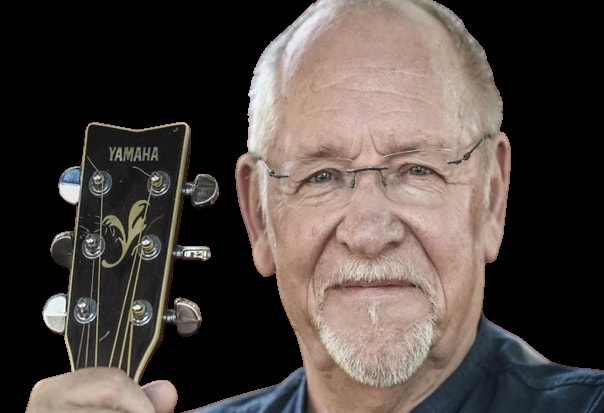Eric Bogle Lyrics And Chords
From One Of The Finest Songwriter Of All Time. Here Are Some of Eric's most popular songs. Most of Eric's songs were recorded by The Fureys and also by The Dubliners. Ronnie Drew was a hugh fan of him having recorded Leaving Nancy and The Band Played Waltzing Matilda. My system of displaying the guitar chords are in Chordpro format.
songwriter
Introduction
Eric Bogle is a renowned singer-songwriter from Scotland, known for his powerful and moving folk songs that have touched the hearts of millions. His music has been covered by numerous artists and has become an integral part of the folk music scene in both his home country and internationally. Bogle’s songs have a unique ability to capture the essence of human emotions and experiences, making him one of the most respected and influential artists of his time. In this thesis, we will explore the life and music of Eric Bogle, delving into his background, his songwriting style, and the impact he has had on the folk music genre.
Early Life and Musical Influences
Eric Bogle was born on September 23, 1944, in Peebles, Scotland. He was the youngest of three children and grew up in a working-class family. Bogle’s parents were both immigrants from Aberdeen, Scotland, and instilled in him a deep love for his Scottish heritage. His father also had a fondness for music and would often play traditional Scottish songs on the harmonica, which sparked Bogle’s interest in music from a young age.
As a child, Bogle was also exposed to American folk and country music through the radio and records his father would bring home. He was particularly drawn to the music of Woody Guthrie, Pete Seeger, and Hank Williams, who would become major influences on his songwriting style.
Bogle’s Musical Journey
At the age of eight, Bogle began learning the guitar and started writing his own songs. He would often perform at local talent shows and events, honing his skills as a musician and songwriter. After completing his education, Bogle worked various jobs, including as a factory worker and a teacher, but his true passion remained in music.
In 1969, Bogle made the life-changing decision to move to Australia, where he settled in Adelaide. It was here that he began his professional music career, playing at local clubs and venues. He quickly gained a following with his powerful and emotive songs, and in 1971, he released his first album, ‘Now I’m Easy’. The title track became an instant hit and remains one of his most well-known and beloved songs.
Songwriting Style and Themes
Bogle’s songwriting style is deeply rooted in the folk tradition, with a focus on storytelling and capturing the human experience. He has a talent for crafting poignant and thought-provoking lyrics that address a wide range of topics, from war and social justice to love and family.
One of Bogle’s most notable songwriting techniques is his ability to take historical events and turn them into powerful and emotional songs. His song ‘And the Band Played Waltzing Matilda’ is a prime example of this, depicting the horrors of war through the eyes of a young soldier. He also draws inspiration from his own personal experiences, such as ‘Leaving Nancy’, a song about leaving his homeland and the loved ones he left behind.
Impact and Legacy
Eric Bogle’s impact on the folk music scene cannot be overstated. His songs have been covered by countless artists, including Joan Baez, Mary Black, and Billy Bragg, and have become staples in the folk music repertoire. He has also received numerous awards and accolades throughout his career, including the Order of Australia Medal in 1987 for his services to the Australian music industry.
Bogle’s music has also had a profound impact on his listeners, with many describing his songs as thought-provoking, moving, and deeply touching. His ability to capture the human experience and connect with his audience has solidified his place as one of the most influential singer-songwriters of his time.
Conclusion
In conclusion, Eric Bogle’s contributions to the folk music genre are immeasurable. His powerful and emotive songs have touched the hearts of millions and have become a vital part of the folk music canon. Through his music, Bogle has captured the essence of the human experience, creating a lasting impact on his listeners and securing his place as one of the most respected and beloved artists in the folk music scene.
Introduction
Eric Bogle is a renowned singer-songwriter from Scotland, known for his powerful and moving folk songs that have touched the hearts of millions. His music has been covered by numerous artists and has become an integral part of the folk music scene in both his home country and internationally. Bogle’s songs have a unique ability to capture the essence of human emotions and experiences, making him one of the most respected and influential artists of his time. In this thesis, we will explore the life and music of Eric Bogle, delving into his background, his songwriting style, and the impact he has had on the folk music genre.
Early Life and Musical Influences
Eric Bogle was born on September 23, 1944, in Peebles, Scotland. He was the youngest of three children and grew up in a working-class family. Bogle’s parents were both immigrants from Aberdeen, Scotland, and instilled in him a deep love for his Scottish heritage. His father also had a fondness for music and would often play traditional Scottish songs on the harmonica, which sparked Bogle’s interest in music from a young age.
As a child, Bogle was also exposed to American folk and country music through the radio and records his father would bring home. He was particularly drawn to the music of Woody Guthrie, Pete Seeger, and Hank Williams, who would become major influences on his songwriting style.
Bogle’s Musical Journey
At the age of eight, Bogle began learning the guitar and started writing his own songs. He would often perform at local talent shows and events, honing his skills as a musician and songwriter. After completing his education, Bogle worked various jobs, including as a factory worker and a teacher, but his true passion remained in music.
In 1969, Bogle made the life-changing decision to move to Australia, where he settled in Adelaide. It was here that he began his professional music career, playing at local clubs and venues. He quickly gained a following with his powerful and emotive songs, and in 1971, he released his first album, ‘Now I’m Easy’. The title track became an instant hit and remains one of his most well-known and beloved songs.
Songwriting Style and Themes
Bogle’s songwriting style is deeply rooted in the folk tradition, with a focus on storytelling and capturing the human experience. He has a talent for crafting poignant and thought-provoking lyrics that address a wide range of topics, from war and social justice to love and family.
One of Bogle’s most notable songwriting techniques is his ability to take historical events and turn them into powerful and emotional songs. His song ‘And the Band Played Waltzing Matilda’ is a prime example of this, depicting the horrors of war through the eyes of a young soldier. He also draws inspiration from his own personal experiences, such as ‘Leaving Nancy’, a song about leaving his homeland and the loved ones he left behind.
Impact and Legacy
Eric Bogle’s impact on the folk music scene cannot be overstated. His songs have been covered by countless artists, including Joan Baez, Mary Black, and Billy Bragg, and have become staples in the folk music repertoire. He has also received numerous awards and accolades throughout his career, including the Order of Australia Medal in 1987 for his services to the Australian music industry.
Bogle’s music has also had a profound impact on his listeners, with many describing his songs as thought-provoking, moving, and deeply touching. His ability to capture the human experience and connect with his audience has solidified his place as one of the most influential singer-songwriters of his time.
Conclusion
In conclusion, Eric Bogle’s contributions to the folk music genre are immeasurable. His powerful and emotive songs have touched the hearts of millions and have become a vital part of the folk music canon. Through his music, Bogle has captured the essence of the human experience, creating a lasting impact on his listeners and securing his place as one of the most respected and beloved artists in the folk music scene.
And The Band Played Waltzing Matilda
All The Fine Young Men
A Reason For It All
Bringing Buddy Home
The Ballad Of Henry Holloway
The Cocky Farmer
The Dreamer
Glasgow Lullaby Lyrics And Chords
If Wishes Were Fishes
Leaving The Land
My Youngest Son Came Home Today
The Green Fields Of France
Singing The Spirit Home
Safe In The Harbour
All The Fine Young Men
A Reason For It All
Bringing Buddy Home
The Ballad Of Henry Holloway
The Cocky Farmer
The Dreamer
Glasgow Lullaby Lyrics And Chords
If Wishes Were Fishes
Leaving The Land
My Youngest Son Came Home Today
The Green Fields Of France
Singing The Spirit Home
Safe In The Harbour


